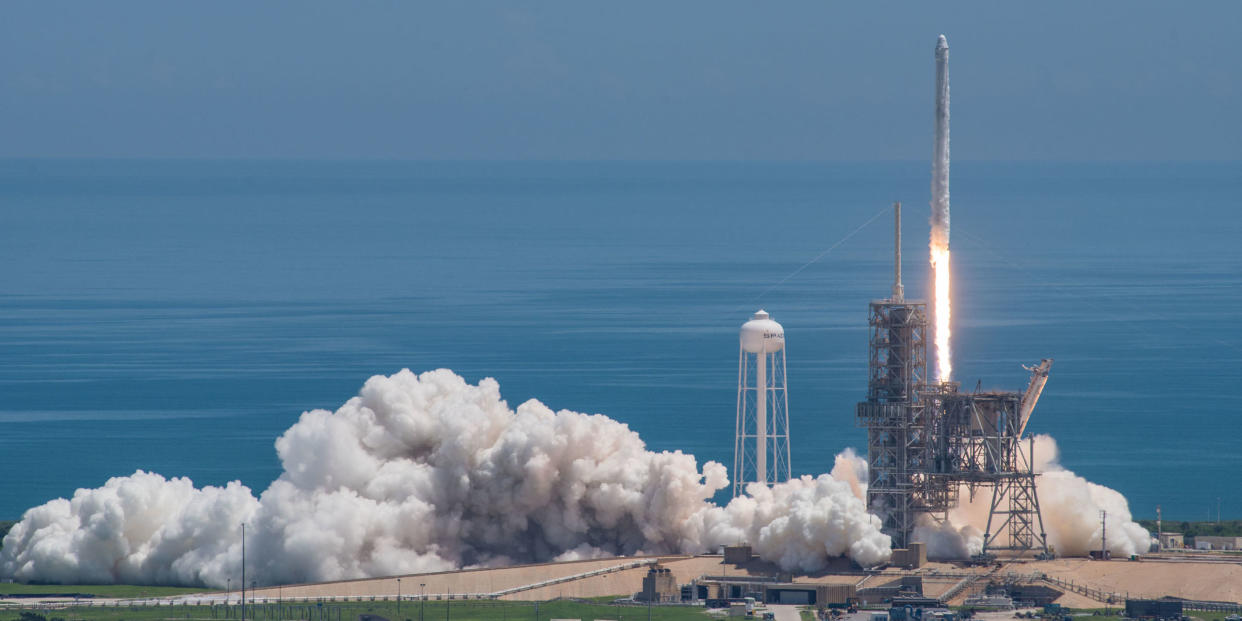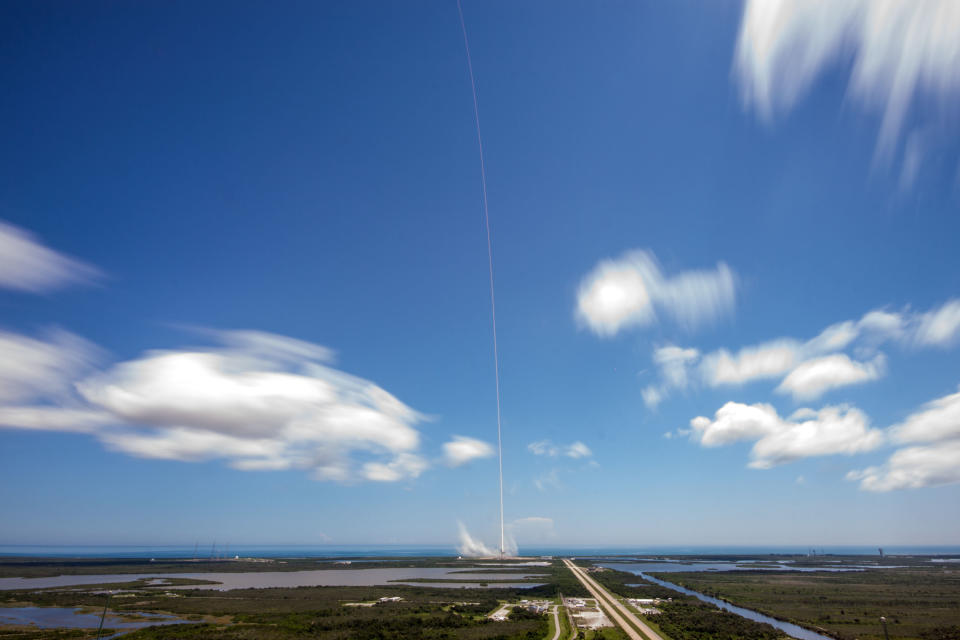Here's Some Good Rocket Launch News for a Change

SpaceX, Elon Musk's space transport services and aerospace manufacturing company, launched another unmanned rocket into space today at 12:31pm EST. The Falcon 9 rocket successfully launched and landed at the Kennedy Space Center in Florida, sending its Dragon capsule on a cargo mission to the International Space Station. A team on the ISS will catch Dragon early Wednesday morning and unload more than 6,400 pounds of research equipment, cargo, and supplies.
We have LIFTOFF! @SpaceX’s #Dragon spacecraft leaves Earth to deliver science & supplies to @Space_Station. Watch: https://t.co/xb3hu5HIV4 pic.twitter.com/iLlIgd4iW7
- NASA Kennedy / KSC (@NASAKennedy) August 14, 2017
This is the twelfth mission to the ISS that SpaceX has completed for NASA with the Falcon 9 launch vehicle and Dragon spacecraft. In 2014, the company signed a contract with NASA to resupply the space station until 2024 as part of a second Commercial Resupply Services contract award. Last month, it came out that the latest round of new funding for SpaceX valued the company at around $21 billion.

This is reportedly the last time SpaceX will launch a factory-fresh rocket from its Dragon line. For future launches, the company plans to only reuse spacecraft. This is party of Elon Musk's vision to make human life multi-planetary, by eliminating bulk of the cost for space travel-the fresh vehicle.
"If one can figure out how to effectively reuse rockets just like airplanes, the cost of access to space will be reduced by as much as a factor of a hundred. A fully reusable vehicle has never been done before. That really is the fundamental breakthrough needed to revolutionize access to space" - Elon Musk
12th mission of our Dragon robotic space freighter in support of the @NASA @Space_Station https://t.co/vlGbGLgBcR
- Elon Musk (@elonmusk) August 14, 2017
In March 2017, they made history launching the first used rocket into space and returning it to Earth. By 2018, the company is hoping to launch both cargo and crew into space.
Also notable about today's mission is the type of research supplies onboard with which the company plans to conduct space-related and other scientific investigations. This includes equipment that'll be used to grow a protein believed to be the greatest genetic contributor to Parkinson's disease, which is too small to study in Earth-grown versions. In addition, the Dragon will carry a microsatellite that's part of the Kestrel Eye investigation, which could lower the cost of Earth imagery involved with tracking severe weather and detecting natural disasters.
Tech aficionados are also excited about the Hewlett Packard Enterprise's Spaceborne Computer that's on board, which will test whether a commercial computer can stand lower Earth orbit conditions.
TBD whether the human race will be able to meet any of these space-durability standards.
You Might Also Like

